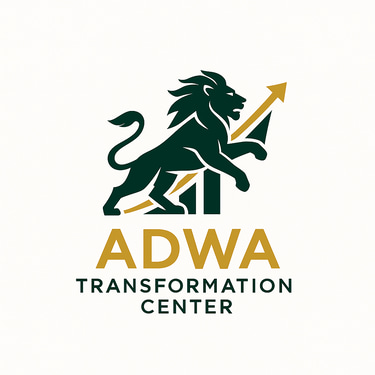Ethio telecom is Selling Shares, But It's Not What You Think!
Ethio telecom's recent share offering has been generating a lot of buzz, with many calling it Ethiopia's first "IPO." While this event marks a significant step towards privatization and public investment, labeling it as an IPO is technically inaccurate and could lead to confusion. This miscommunication highlights a broader concern: the limited understanding of stock market concepts in Ethiopia..
NEWS
10/16/20244 min read


(By Dr Abush Ayalew)
Why Accurate Terminology Matters for
Understanding the Difference
Think of it like this: Imagine you're invited to a fancy party. You get all dressed up, expecting a big celebration with music and dancing. But when you arrive, it turns out to be just a small gathering with snacks and drinks before the real party. It's still a party, but not the one you were expecting.
That's kind of what's happening with Ethio telecom. They're selling shares, but they're not doing it on a stock exchange yet. A stock exchange is like a big market where people buy and sell shares of different companies. Ethio telecom will list its shares on the Ethiopian stock exchange (called the ESX) later, but not right now.
A true Initial Public Offering (IPO) involves listing a company's shares on a stock exchange, where they can be freely traded by the public. Ethio telecom's offering, while allowing the public to buy shares, differs in a few key ways:
No Immediate Listing: The shares are being sold directly through Telebirr, not on a stock exchange. Listing on the Ethiopian Securities Exchange (ESX) will happen later.
Limited Trading: Investors can't immediately buy and sell shares on an open market, limiting liquidity.
Only Primary Shares: Only newly issued shares are being offered, not existing shares held by current owners.
This type of offering is more accurately called a direct public offering (DPO) or a pre-IPO offering.
Why the Confusion Matters
Mislabeling this event as an IPO can have several negative consequences:
Unrealistic Expectations: Investors might expect immediate trading and liquidity, leading to disappointment.
Diluted Impact: When true IPOs occur on the ESX, their significance might be diminished if people already associate the term with Ethio telecom's limited offering.
Misleading International Investors: Foreign investors familiar with standard IPOs might misinterpret the situation, potentially leading to incorrect valuations.
Damaged Trust: Inaccurate information can erode trust in the developing Ethiopian stock market.
Examples of Miscommunication
Several media outlets have reported on Ethio telecom's offering using the term "IPO." This can create confusion, especially for those new to investing. For example, headlines like "Ethio telecom Launches Historic IPO" could mislead readers about the nature of the offering.
The Role of Investment Bankers and the ECMA
In a traditional IPO, investment banks play a crucial role. They help companies determine the share price, underwrite the offering, market it to investors, and navigate regulatory requirements. The Capital Market Authority (CMA), such as the ECMA in Ethiopia, oversees the entire process, ensuring compliance and protecting investors.
In Ethio telecom's case, the ECMA has approved the offering and set guidelines. However, the involvement of investment bankers might be limited since it's not a typical exchange-listed IPO. As the ESX develops, the roles of investment bankers and the ECMA will become increasingly important for facilitating true IPOs and maintaining market integrity.
Examples of Recent IPOs
To illustrate the characteristics of a true IPO, let's look at some recent examples:
Airbnb (ABNB): In December 2020, Airbnb went public on the Nasdaq stock exchange, raising $3.5 billion in its IPO. The company's shares were offered to the public through a traditional underwriting process, and they began trading on the Nasdaq under the ticker symbol ABNB.
Coinbase (COIN): In April 2021, Coinbase, a cryptocurrency exchange platform, went public through a direct listing on the Nasdaq. This approach allowed existing shareholders to sell their shares directly to the public without the involvement of underwriters.
Rivian (RIVN): In November 2021, Rivian, an electric vehicle manufacturer, went public on the Nasdaq, raising nearly $12 billion in one of the largest IPOs in U.S. history. The company's shares were offered through a traditional IPO process, with underwriters playing a key role in pricing and distribution.
These examples demonstrate the key features of an IPO, including listing on a stock exchange, public trading of shares, and the involvement of investment bankers and the CMA.
Addressing the Need for Financial Literacy
The confusion surrounding Ethio telecom's offering highlights a critical issue: the lack of widespread financial literacy in Ethiopia. With the upcoming launch of the ESX, it's crucial for individuals to understand basic investment concepts, including the difference between a DPO and an IPO.
The limited coverage of these nuances in mainstream media is worrisome. Media outlets have a responsibility to provide accurate and informative reporting, especially on financial matters that can significantly impact people's lives and investment decisions.
What Can Be Done?
Accurate Terminology: Use precise terms like "direct public offering" or "pre-IPO offering."
Public Education: The ECMA and financial institutions should educate the public about the differences.
Media Responsibility: Media outlets should use accurate terminology and provide clear explanations.
Adwa Finance's Role: Platforms like Adwa Finance can play a crucial role in educating investors about the nuances of this offering and the upcoming stock exchange launch.
Clear communication and widespread financial literacy are essential for building a strong and transparent capital market in Ethiopia. By understanding the distinction between this offering and a true IPO, investors can make informed decisions and contribute to the healthy development of the Ethiopian stock market.
Ready to deepen your understanding of investment strategies and market dynamics? Enroll in our comprehensive stock market courses at Adwa Transformation Center and gain the knowledge and skills to navigate the complexities of the financial world with confidence! Visit our website: https://www.adwatransformation.com.


